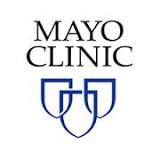Preventing Weight Gain and Controlling Blood Pressure During Smoking Cessation in Hypertensive Smokers
| Status: | Completed |
|---|---|
| Conditions: | High Blood Pressure (Hypertension), Peripheral Vascular Disease, Cardiology |
| Therapuetic Areas: | Cardiology / Vascular Diseases |
| Healthy: | No |
| Age Range: | Any |
| Updated: | 11/18/2012 |
| Start Date: | September 2004 |
| End Date: | June 2011 |
| Contact: | Cassie Cunningham (Iowa City, IA) |
| Email: | cassie.cunningham@va.gov |
| Phone: | 319-338-0581 |
Blood Pressure Control in Hypertensive Smokers
The purpose of this study is to develop effective interventions that assist individuals with
high blood pressure to quit smoking and prevent weight gain.
BACKGROUND:
High blood pressure (BP), or hypertension, is a major risk factor for cardiovascular
morbidity and mortality. Hypertension is associated with an elevated risk for several
cardiovascular complications, including coronary heart disease, peripheral vascular disease,
congestive heart failure, and stroke, as well as an increased risk for renal disease.
Although there have been significant advances in the detection and treatment of high BP,
approximately one in four adults in the United States is hypertensive. Cigarette smoking
accounts for more than 400,000 premature deaths each year in this country alone, making it
the leading cause of morbidity and mortality. Evidence from several epidemiological studies
has demonstrated that, at any level of BP, smoking substantially increases the risk for all
cardiovascular complications associated with hypertension. While cigarette smoking and
hypertension both increase the risk of cardiovascular disease, these two risk factors act
synergistically to produce a greater risk than their combined independent effects. Despite
the considerable health risks, smoking among people with hypertension is very common, with a
prevalence approaching that observed among those with normal BP. Unfortunately, although
quitting smoking is especially important for patients with high BP, smoking cessation
produces a nontrivial weight gain, averaging 5 kg, which may exacerbate hypertension in many
patients with the disorder. Several studies have documented significant elevations in BP
following smoking cessation, as well as increases in the prevalence of hypertension after
quitting smoking. As such, it is important to develop effective interventions that assist in
quitting smoking and preventing weight gain.
DESIGN NARRATIVE:
The objective of the trial is to recruit 750 smokers with Stage 1 hypertension or
prehypertension (based on JNC VII criteria). The trial will provide all participants with a
brief, validated, combined behavioral and pharmacologic smoking cessation intervention.
Additionally, the study will randomly assign participants who are abstinent from smoking
upon completing the cessation intervention to either a 12-week weight management and BP
control program or self-help materials targeting lifestyle modification. The primary
endpoint is change in BP among quit smokers at a one-year follow-up. Secondary endpoints
include changes in body weight, dietary intake, urinary sodium excretion, physical activity,
and relapse to smoking. Exploratory endpoints include changes in hypertensive status (e.g.,
movement from prehypertensive to hypertensive by JNC VII criteria) and changes in BP
medication status. This is a multi-site clinical trial, with study locations in Rochester,
Minnesota, and Iowa City, IA. The Rochester, MN site is currently closed for recruitment.
Inclusion Criteria:
- Smoke at least 5 cigarettes/day (or have quit within the last 6 weeks to enter the
study for the weight gain prevention and BP control interventions)
- Pre-hypertensive or Stage I hypertension (systolic BP from 120 to 159 and/or
diastolic BP from 80 to 99 mm Hg). Antihypertensive medications are not criteria for
exclusion provided that BP is not over 160/100 mm Hg)
- Access to a telephone
Exclusion Criteria:
- History of unstable cardiovascular disease, including myocardial infarction, stroke,
and unstable angina within three months of study start
- Coronary artery bypass grafting or angioplasty/stent within three months of study
start
- Cardiac dysrhythmia treated with anti-arrhythmia medication, except stable atrial
fibrillation
- Untreated hyperthyroidism or pheochromocytoma
- History of congestive heart failure (NYHA Class III or IV)
- ECG evidence of 2nd or 3rd degree atrioventricular block
- Uncontrolled or Stage II Hypertension as defined as BP consistently above 160/100 mm
Hg
- History of severe liver or kidney failure
- Current substance abuse (includes alcohol use in excess of 21 drinks a week)
- Presence of an unstable psychiatric condition
- Severe chronic obstructive pulmonary disease
- Symptomatic peripheral vascular disease
- Pulmonary hypertension with shortness of breath
- Congenital or valvular heart disease with shortness of breath
- Current use of a medication that may interfere with primary study endpoints or that
may increase the risk of side effects from study medication that cannot be
discontinued
- Pregnant or plans to become pregnant within the next year
- Planning to move out of the area or travel extensively during the intervention
- Any medical condition that would preclude any additional changes in diet
- Unable to further modify physical activity routine
- Cannot engage in moderate intensity exercise (e.g., walking)
We found this trial at
2
sites
Mayo Clinic College of Medicine Mayo Medical School enrolls a select class of 50 medical...
Click here to add this to my saved trials
Iowa City, Iowa
Click here to add this to my saved trials
